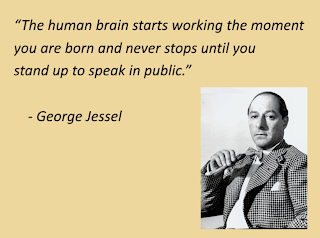Turkey Talk, by Chris Tebbetts
My husband is a terrific cook. 99% of the time, the meals he puts on the table are restaurant quality. Lucky me. But the point is, once in a while, he misses. And the point there is, per his advice, it’s not always something you need to advertise to the people at the table before they’ve even begun to eat.In our house, the shorthand for this idea—one that we apply elsewhere—is to avoid telling people “The turkey’s dry” just as you set said turkey on the table. What’s the point, really? I mean, I know what the point is. It helps to make sure that everyone else knows that you know what’s wrong with the thing you're giving them. It’s also a kind of apology. It releases the tension.Fair enough. But on the other hand, there’s an argument that it’s best to simply set the turkey down and let everyone decide for themselves what they think about it. Quite often—maybe not always, but often—we are our own worst critics, and what seems like a dry turkey to us (literally or figuratively) is just fine to someone else. Or maybe to everyone else but you. I’ve been working hard for a while now at not similarly disclaiming my own manuscripts and other pieces of writing that I submit to my editor, agent, or critique group. It used to be nearly impossible for me not to point out my work's (supposedly) glaring flaws ahead of time, so whoever read it wouldn’t think that I thought it was perfectly okay. It’s a strange compulsion, and also a hard habit to break.But again, as with the turkey analogy, how many times have I sent in a manuscript with a note to the effect of, “I know the beginning is rushed and the dialogue feels stilted in chapter 2. I’m working on it,” only to have my editor reply that the beginning feels just fine and that the dialogue reads perfectly well? In which case, all I’m doing is predisposing my audience to seeing flaws they might not otherwise see—and also making myself seem a bit neurotic, or even needy, if these disclaimers become a discernible habit over time. Same thing with public speaking. One of the things I have done in the past several years is to stop telling audiences how nervous I am just as soon as I get up to speak. The urge to say these kinds of things comes, for me, again, from the not-crazy idea that talking about anxiety can help alleviate it. But at the same time, it's also started to feel as though that initially valuable crutch had turned into something that was holding me back. (Although, for the record, I was sorry to give up this slide that I used to always put at the beginning of presentations, only because I like it and it feels so humorously true….)

If I find myself in a particularly nerve-wracking public speaking situation, or lose my place in the middle of a gig, or whatnot, there’s nothing to stop me from more spontaneously (and organically) stopping to comment on that situation. But why plan on it? Why anticipate the nervousness and memorialize it right into my prepared comments? Every situation is going to be different, so I'm not keen to make any sweeping generalizations about this one. But for what it's worth, my advice to myself is this: Present your best self. Don’t sweat the small stuff. And I’d even say that “fake it till you make it” can be a valuable piece of guidance here—not because I want to go through life as a faker, but because sometimes that confidence I want to have starts as an outside job. Meanwhile, if the turkey (or my speech) is dry in the end, so be it. The audience will figure that out soon enough on their own. But, pssst….guess what? It’s probably just fine.

If I find myself in a particularly nerve-wracking public speaking situation, or lose my place in the middle of a gig, or whatnot, there’s nothing to stop me from more spontaneously (and organically) stopping to comment on that situation. But why plan on it? Why anticipate the nervousness and memorialize it right into my prepared comments? Every situation is going to be different, so I'm not keen to make any sweeping generalizations about this one. But for what it's worth, my advice to myself is this: Present your best self. Don’t sweat the small stuff. And I’d even say that “fake it till you make it” can be a valuable piece of guidance here—not because I want to go through life as a faker, but because sometimes that confidence I want to have starts as an outside job. Meanwhile, if the turkey (or my speech) is dry in the end, so be it. The audience will figure that out soon enough on their own. But, pssst….guess what? It’s probably just fine.
Published on September 13, 2019 04:58
No comments have been added yet.



